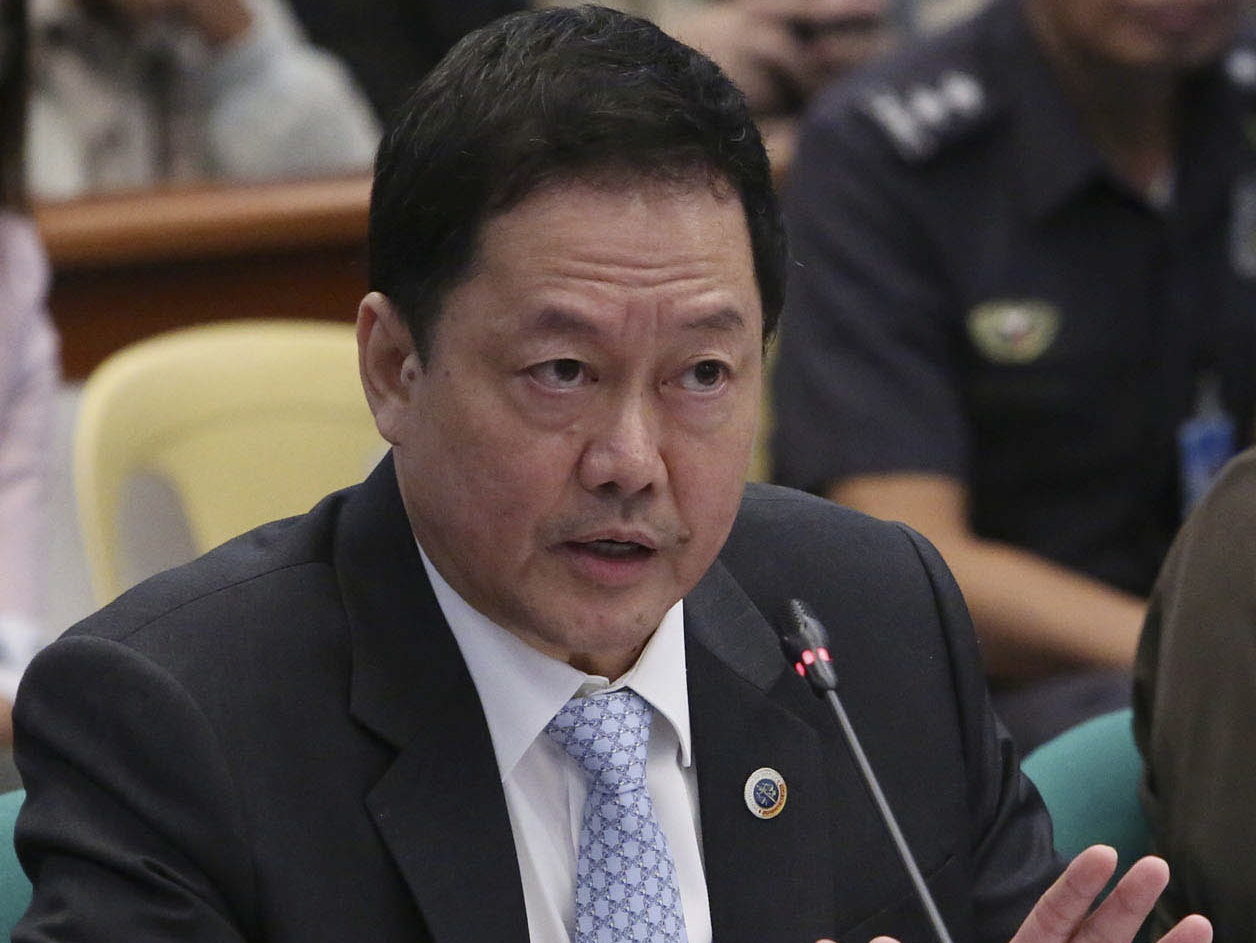
Solicitor General Menardo Guevarra was Justice Secretary during the Duterte administration —Inquirer file/Marianne Bermudez
MANILA, Philippines — It finally began in earnest, and as one House representative noted, it was “better late than never.”
The House committee on human rights has opened an inquiry into the so-called war on drugs waged by then President Rodrigo Duterte, starting with officials who were questioned over the bloody, six-year crackdown, including the alleged “extrajudicial killings” (EJKs), which is now the subject of an investigation in the International Criminal Court (ICC).
During the first hearing on Tuesday, lawmakers sought to retrace the actions then taken by the Department of Justice (DOJ) as the death toll rose and complaints piled up over irregularities in police antidrug operations.
READ: The politics of drug wars
Manila Rep. Bienvenido Abante and ACT Teachers Rep. France Castro asked Justice Secretary and now Solicitor General Menardo Guevarra to explain why the DOJ only looked into 52 of the more than 6,000 drug-related deaths officially acknowledged by the government.
According to Guevarra, the department actually investigated more than 900 complaints against police officers but eventually prioritized 52 cases since these had the strongest chances of going to trial.
He expounded on this by saying: “I don’t think there’s any disagreement that there have indeed been incidents of human rights violations not just during the drug war, but other incidents of … extrajudicial killings, torture, enforced disappearances and other serious violations of the right to life, liberty and security.”
Still looks like ‘cover-up’
“But although probably not sufficient from the point of view of human rights advocates, the executive department has done its share in accordance with the procedure in prosecuting and investigating these abuses.”
Guevarra then expressed “my support” for the House investigation “because finally, the legislative branch has done its share to investigate these alleged abuses during the war on drugs. It might have been late but forthcoming nonetheless.”
Still, allegations of rights abuses, he said, “must be established by means of competent evidence. This means it’s a case-to-case basis, as we cannot really say all police operations led to human rights violations.”
But to this, Castro responded: “I’m sorry, but this makes me think that the DOJ was part of a cover-up because I don’t understand why you didn’t initiate investigations before when you knew this was happening.”
The Philippine government has often cited the 52 cases of drug killings that it says have been investigated as the basis for insisting that the country’s justice system is working and thus has no need for ICC intervention. This is on top of its rejection of the ICC’s jurisdiction after the Duterte administration withdrew the country’s membership in the international tribunal in 2019.
Not meant to help ICC
Human rights groups believe that the actual death toll from the crackdown may range from 12,000 to 30,000 and that the 6,000 deaths listed by the Philippine National Police mostly involved so-called “nanlaban” cases, where law enforcers justified the killing of the drug suspects because the latter were allegedly armed and had resisted arrest during a raid or a buy-bust operation.
Such cases, the rights watchdogs said, should be counted as EJKs for the sheer lack of transparency and due process, made more glaring by the inconsistencies between the police narrative and the statements of eyewitnesses and the suspects’ families.
Abante, the committee chair, clarified that the House inquiry was being conducted in aid of legislation and “will not in any way work with the ICC.”
“(The inquiry) would focus on human rights violations in the local area, and the ICC will be the one to conduct the investigation however they want, but not with the (help of the House) committee on human rights,” he stressed.
In another remark setting the scope and objective of the inquiry, Albay Rep. Edcel Lagman said: “The first act of (drug war) EJK happened eight years ago. However, this is still of overriding importance because this would give the committee the chance to analyze the compendium of evidence in preparation for remedial procedures.”
“It might be eight years since, but better late than never,” Lagman said.
Also facing the panel, another official from the Duterte years, former Philippine National Police chief Oscar Albayalde, said he “never tolerated any misdemeanors” among the PNP personnel in connection with the drug war.
Albayalde recalled that in the high-profile case of Kian delos Santos, a drug war killing in 2017 that eventually led to the conviction of three police officers, he “relieved the whole Caloocan police (force)” to make way for its investigation.